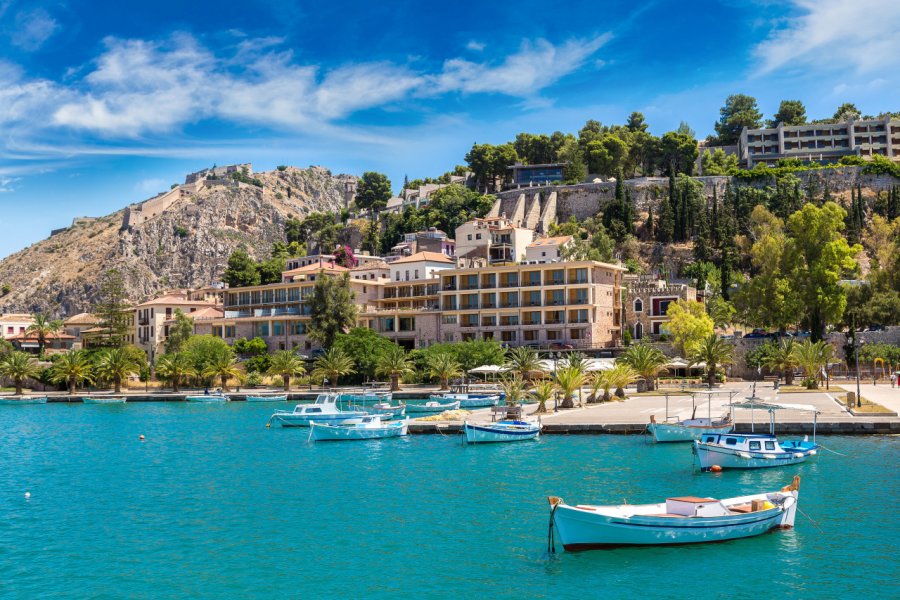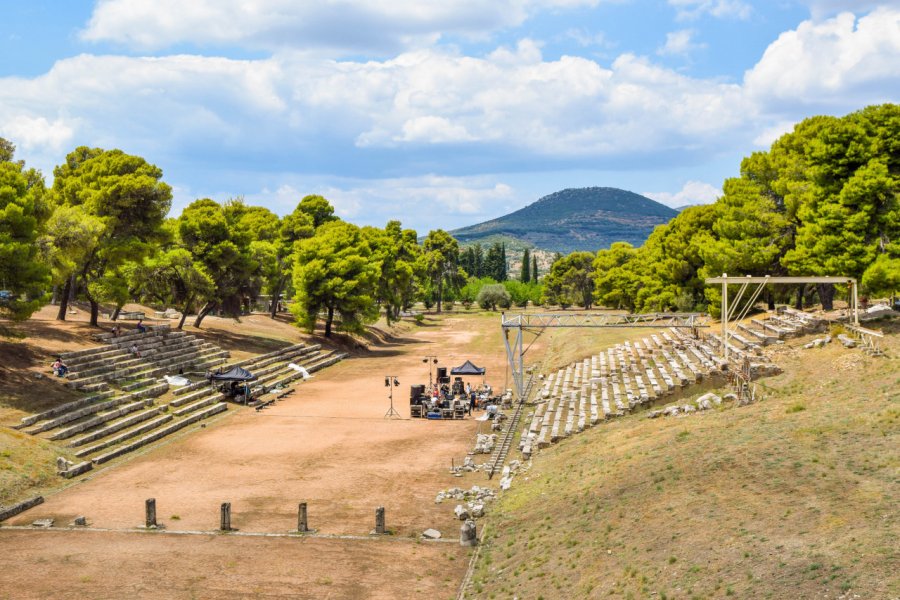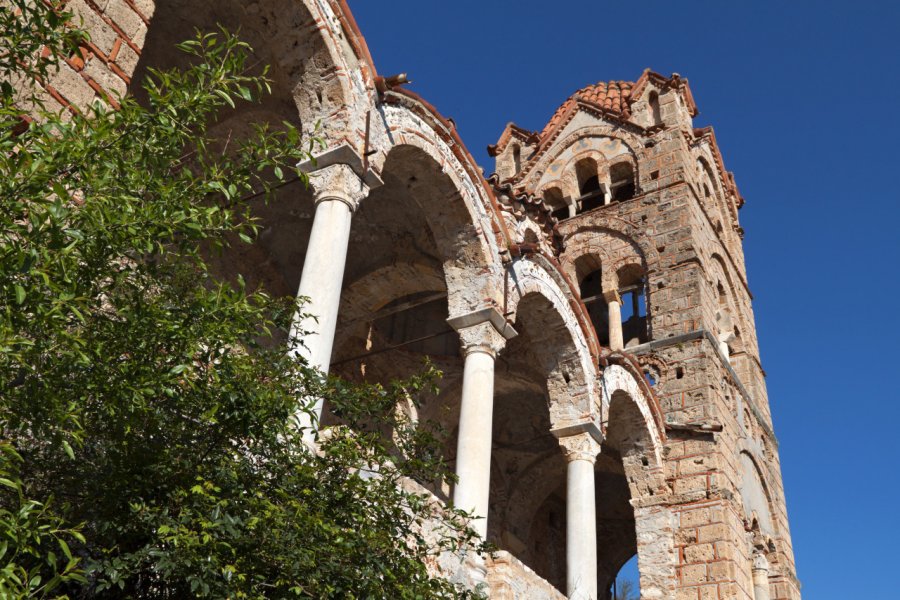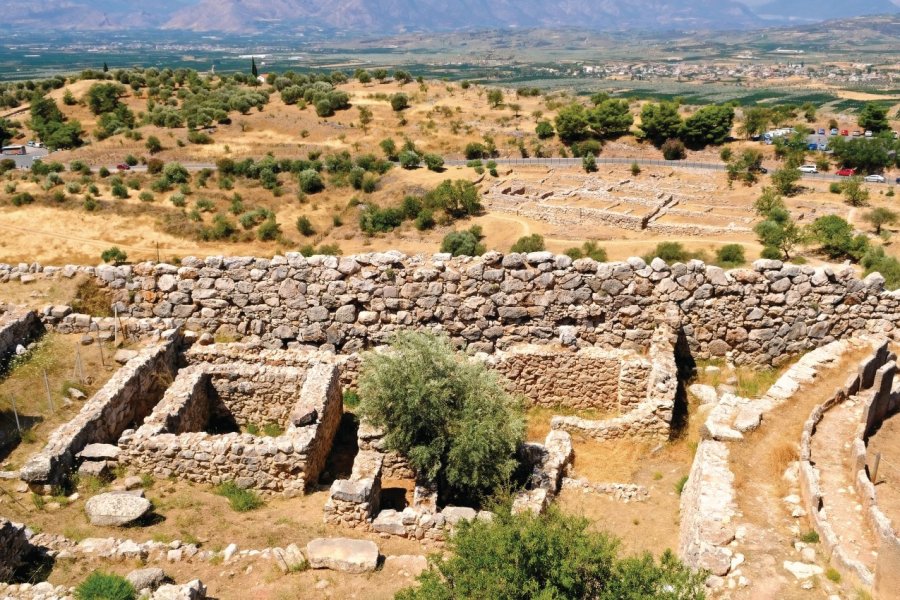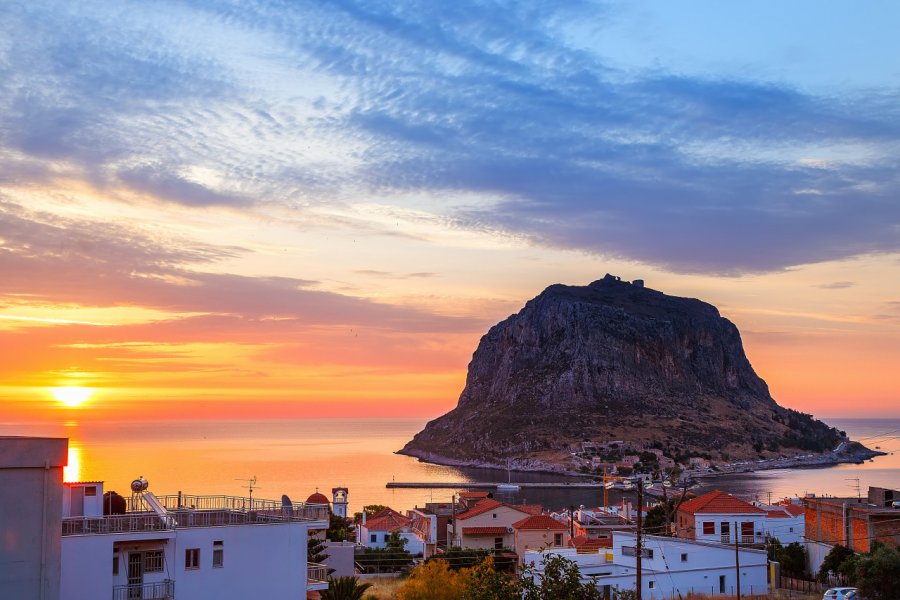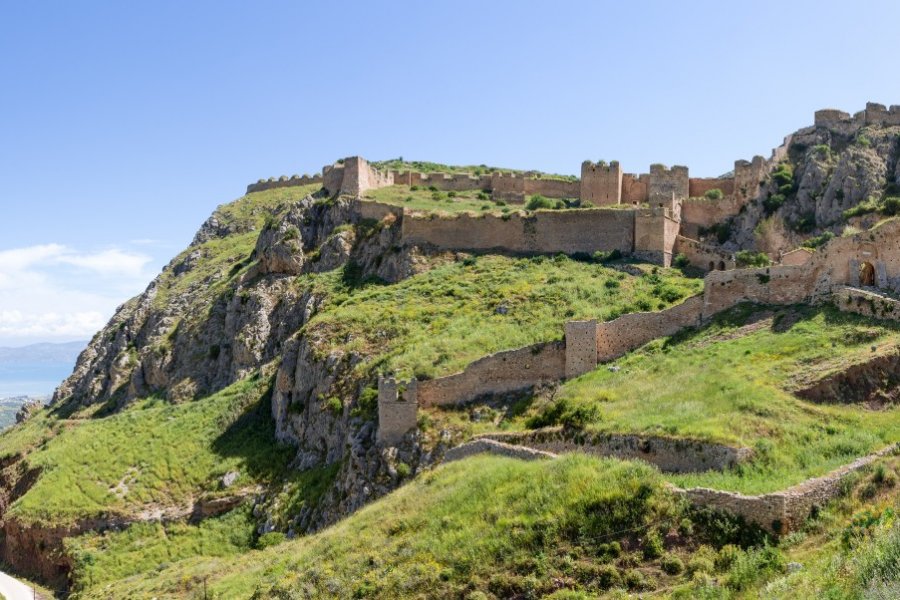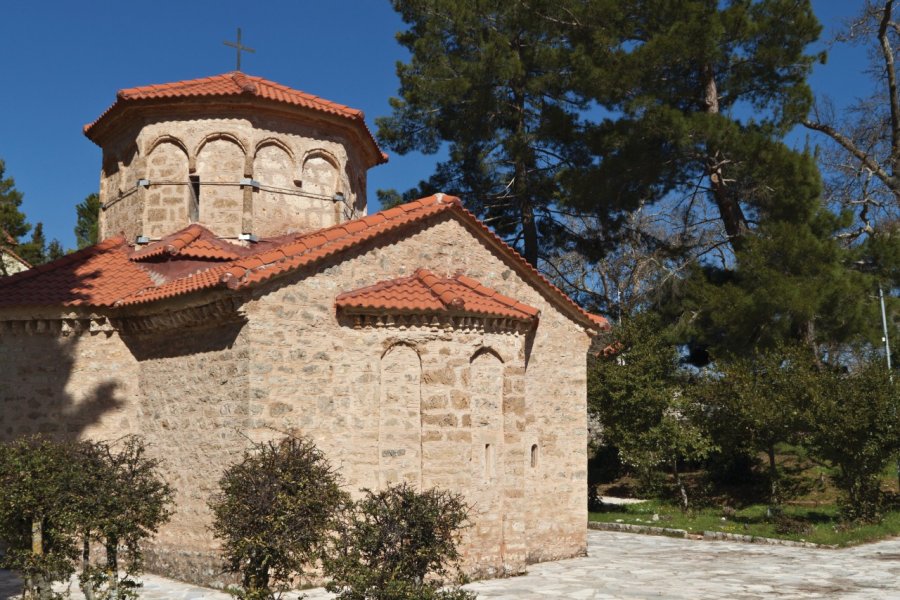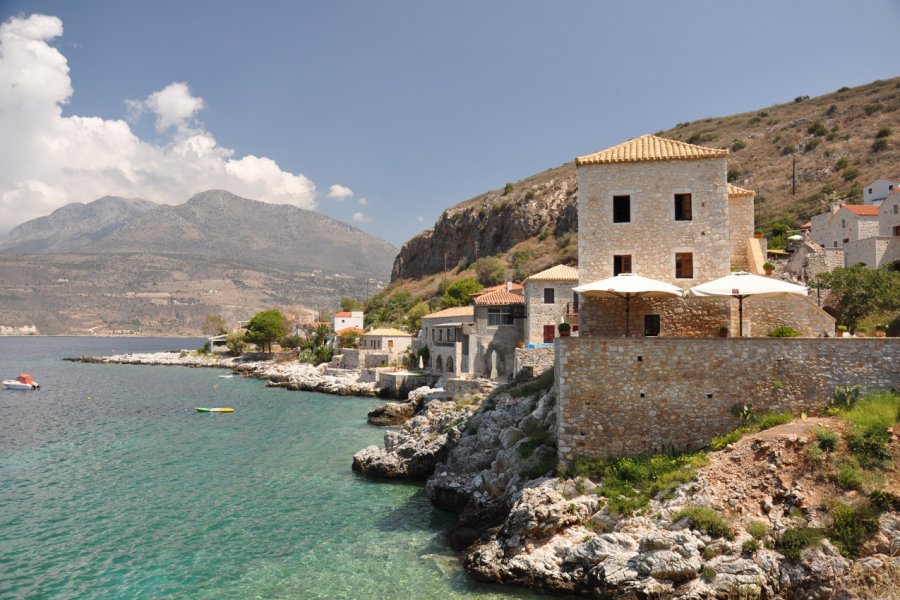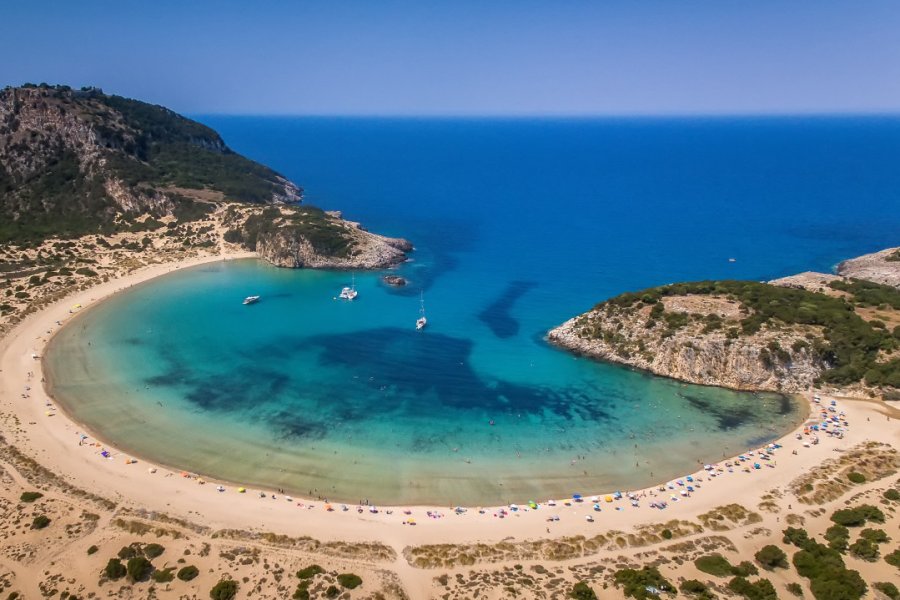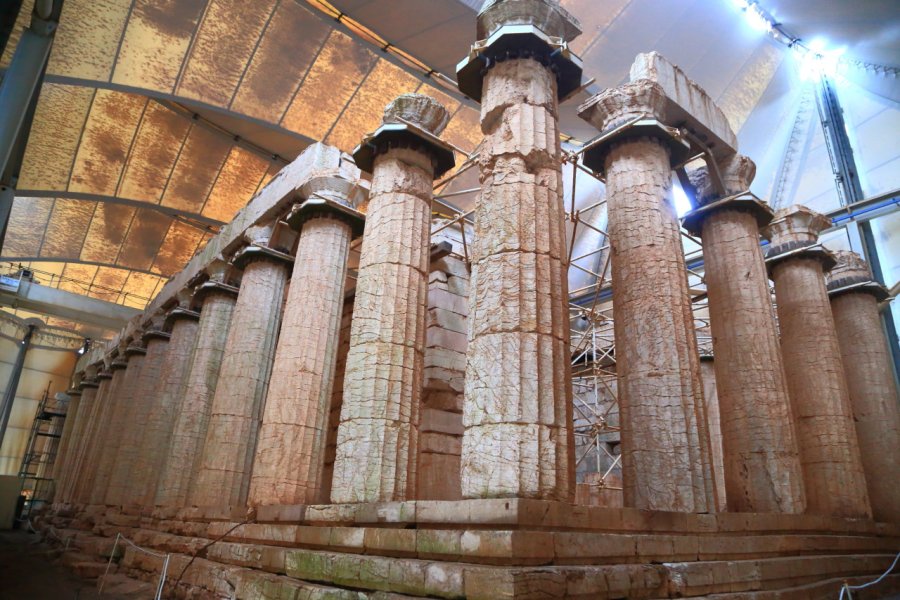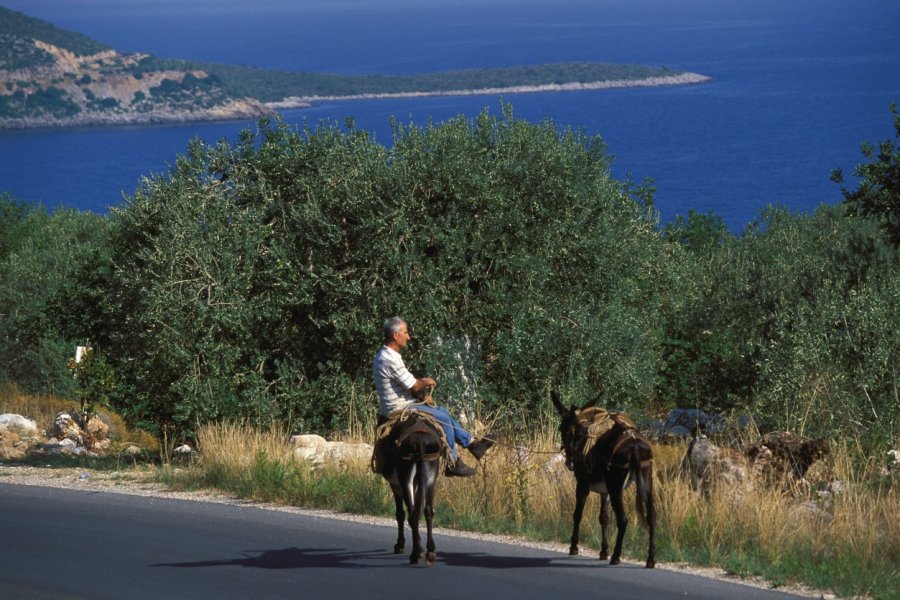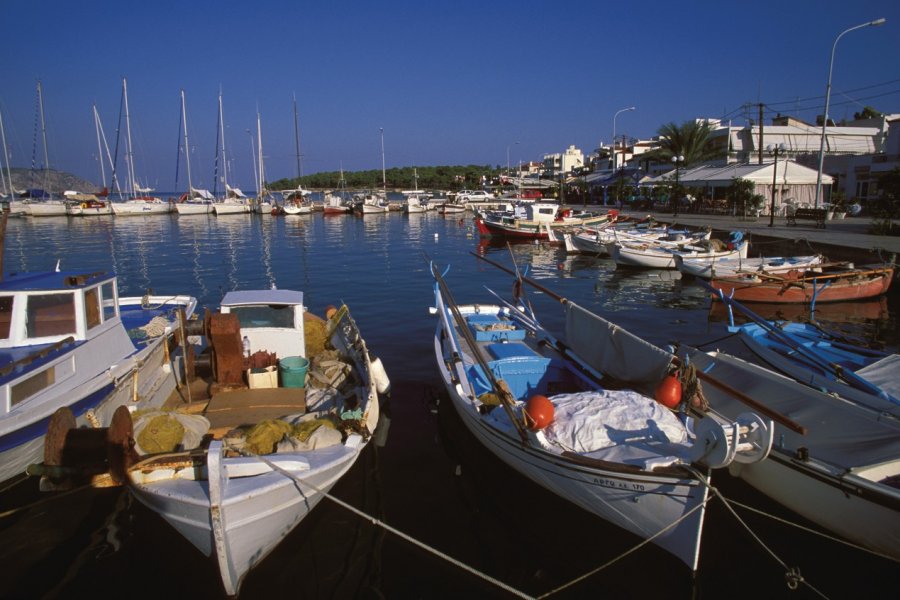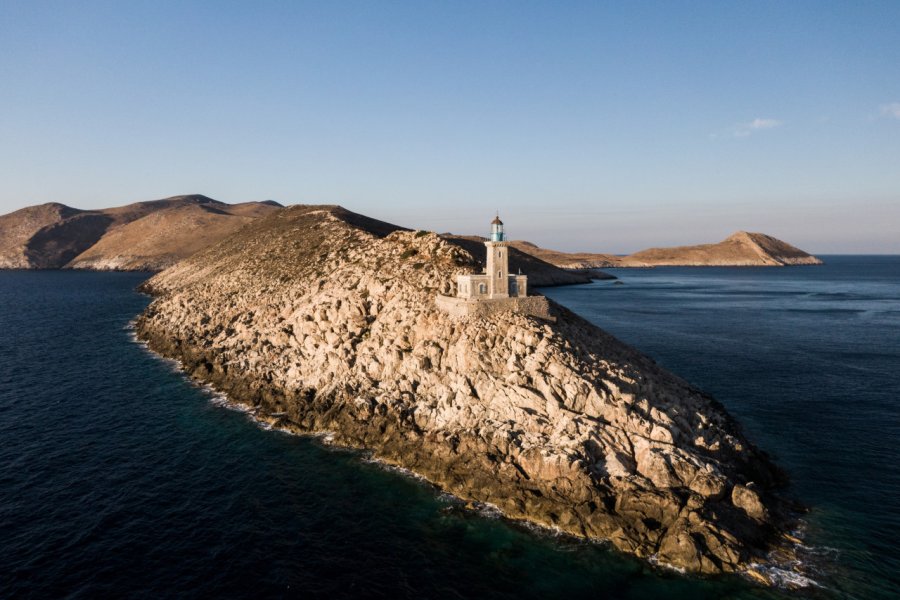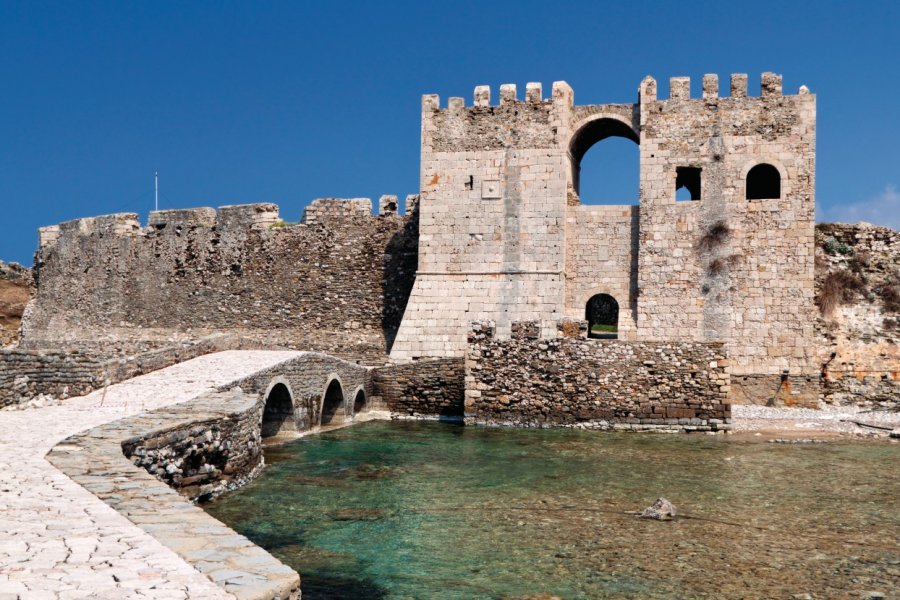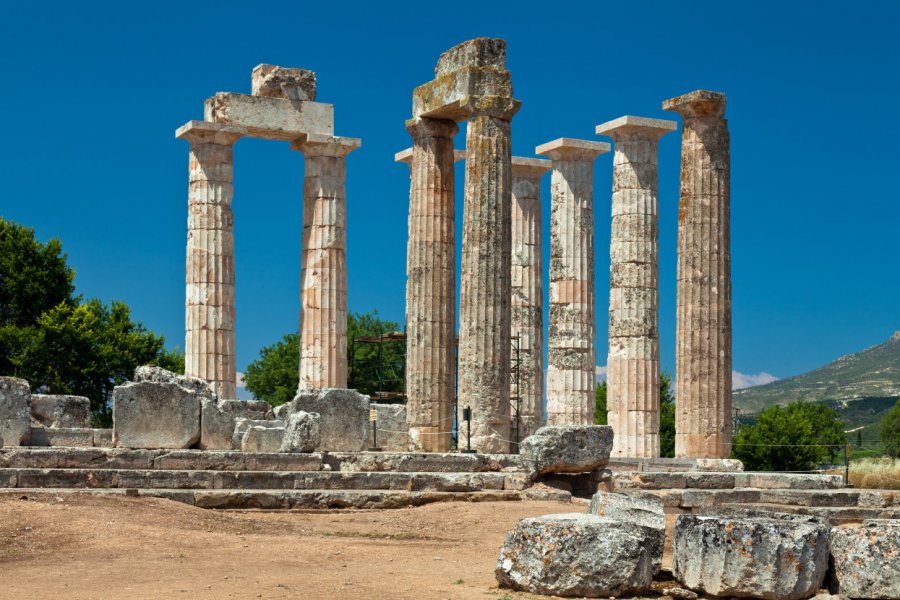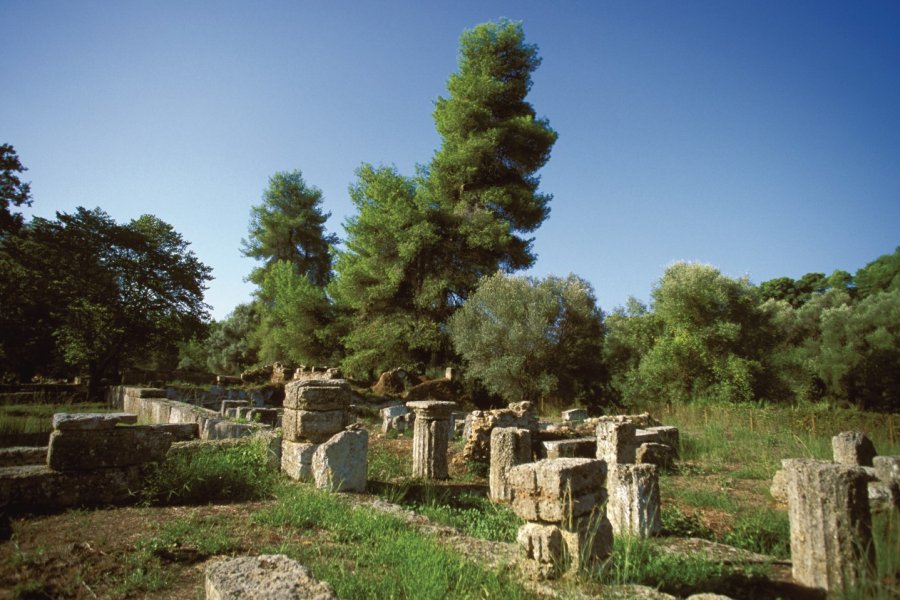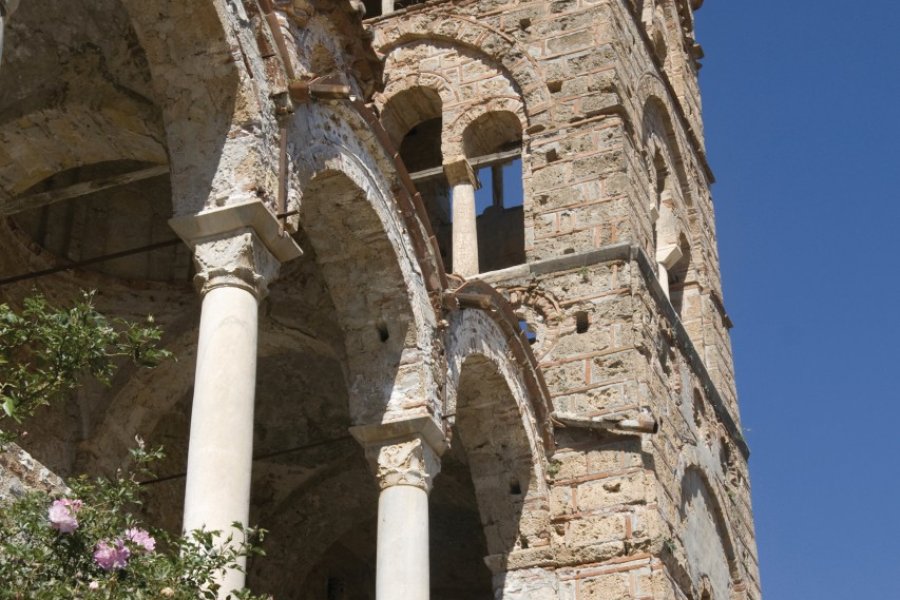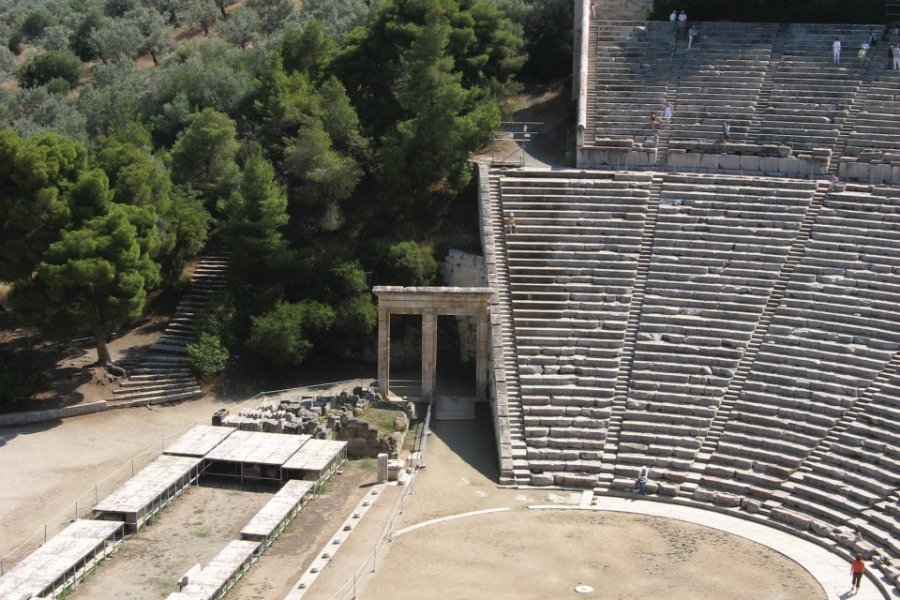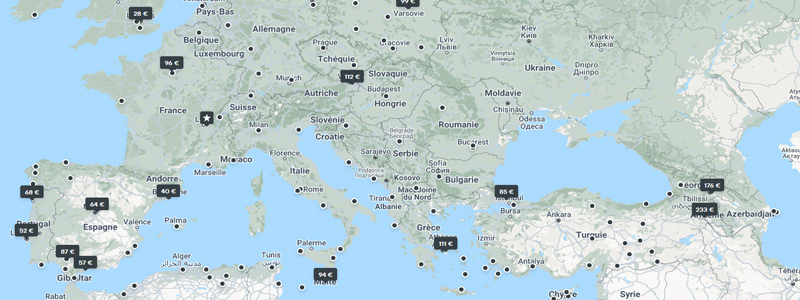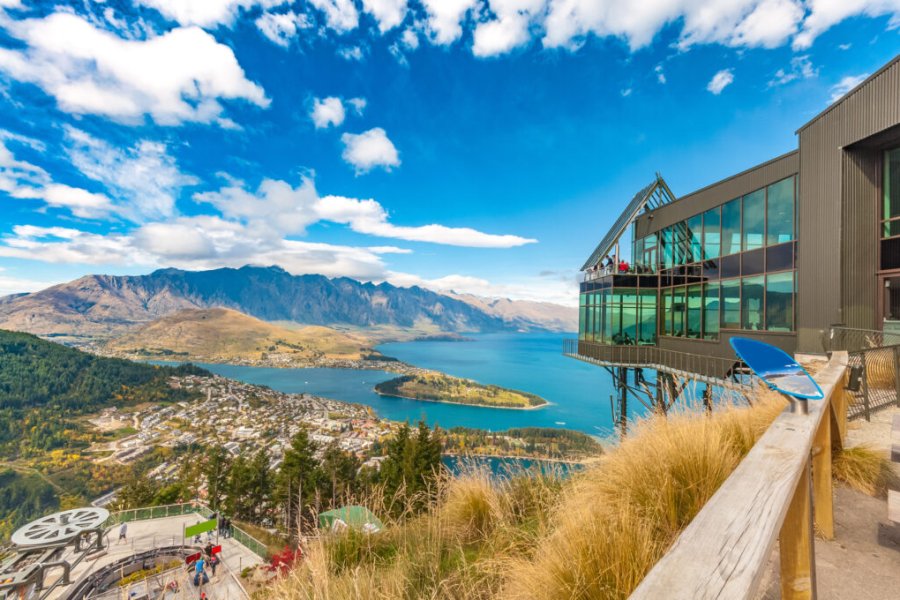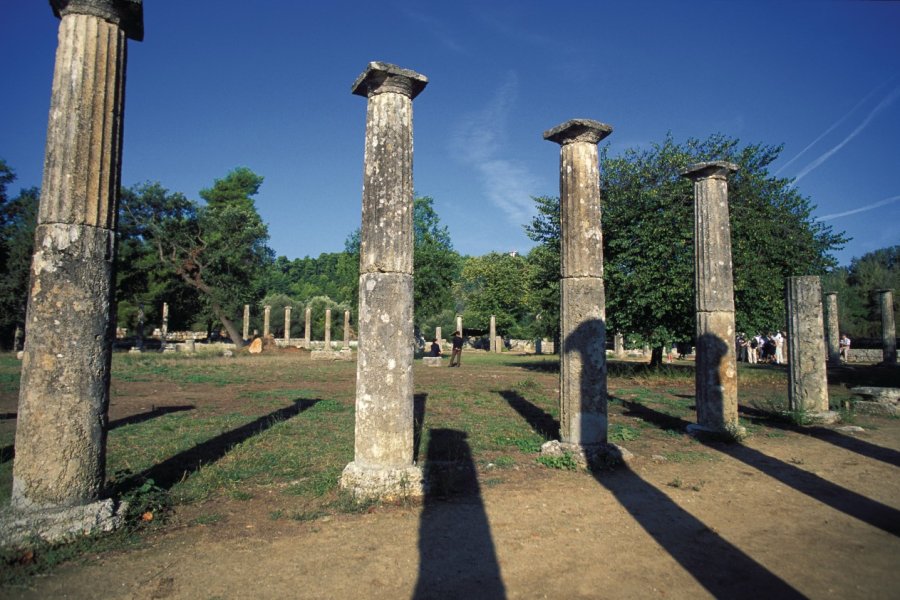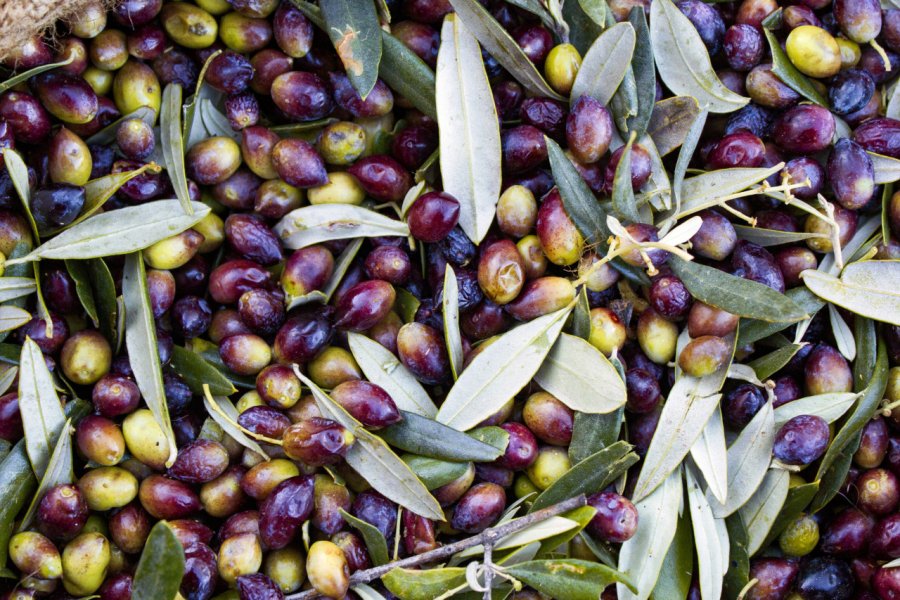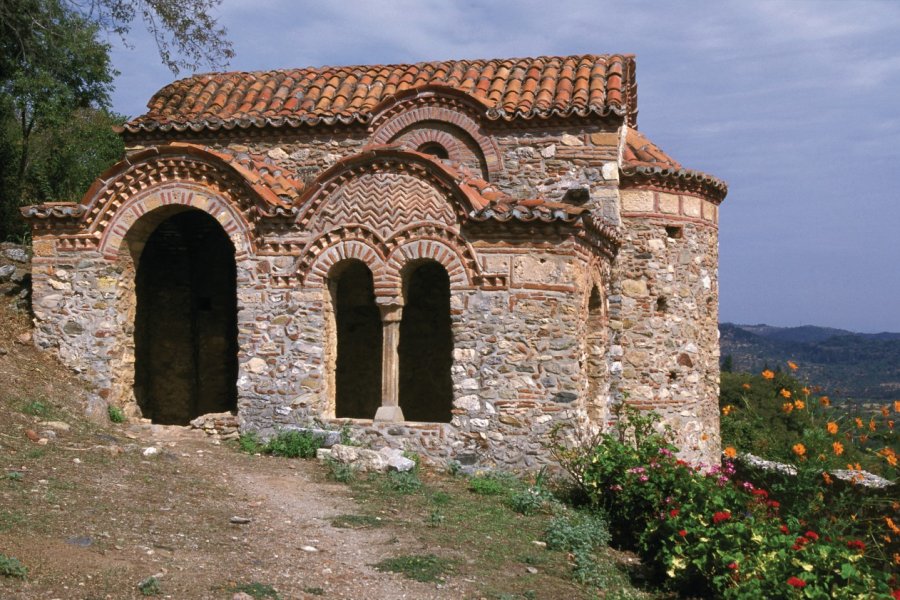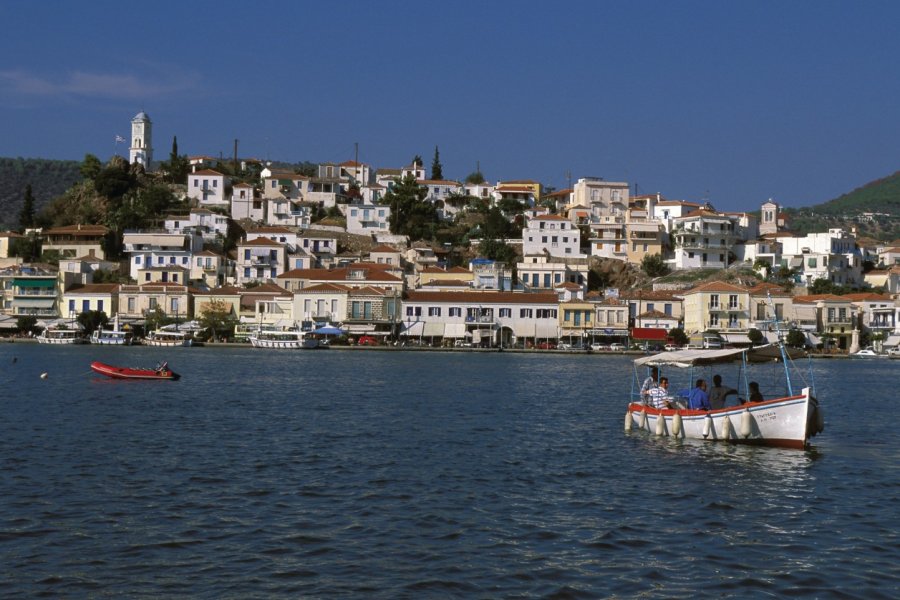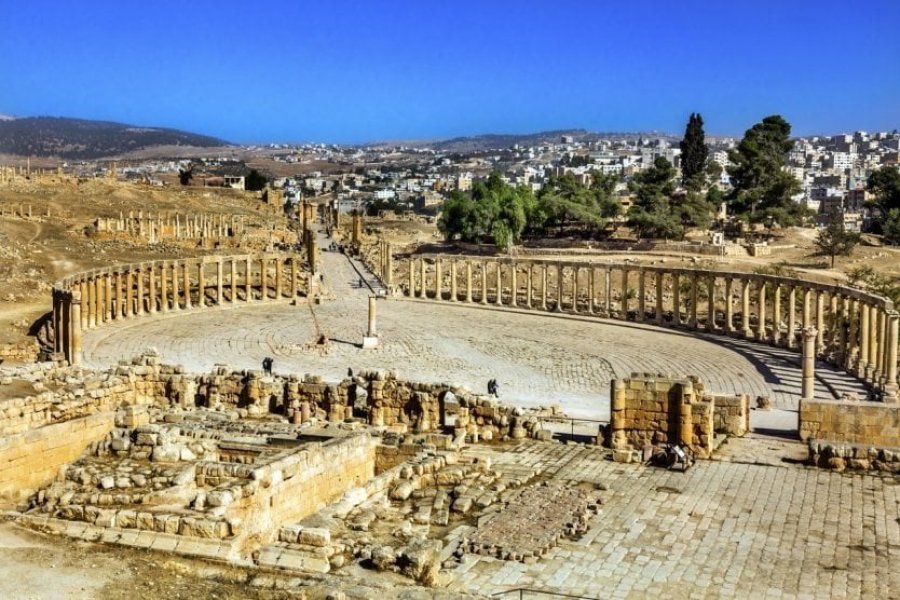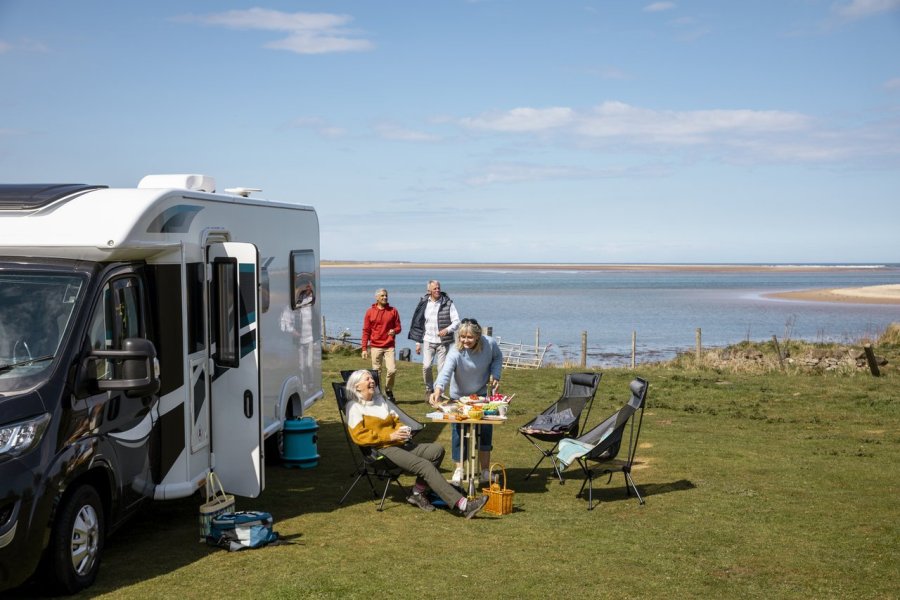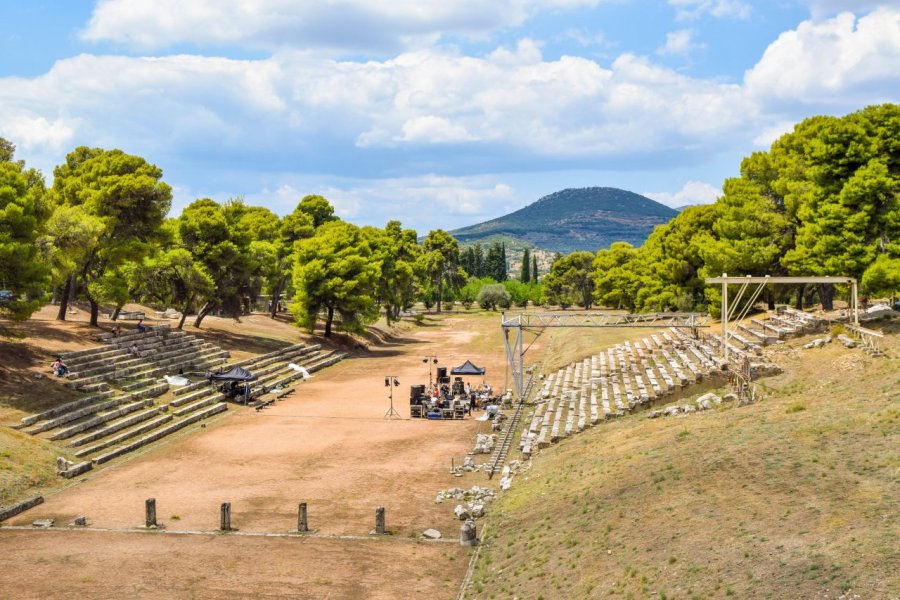Travel Guide Peloponnese
Looking for a journey through time? Discover the Peloponnese! The cradle of Mycenaean civilization, this Greek region, separated from the mainland by the Corinth Canal, boasts an incomparable historical heritage. Ancient Olympia hosted the Olympic Games in ancient Greece. The ruins of the stadium, the temple of Zeus and other important structures bear witness to the grandeur of this sacred site. Our Peloponnese Travel Guide takes you on a quest for unique places to visit, restaurants to discover and incredibleaccommodations to recharge your batteries.
Climb to the medieval fortresses of Mystra and Monemvassia. The latter is perched on a rock connected to the mainland by a narrow strip of land. Its narrow streets are lined with stone houses and Byzantine chapels. All overlooked by an imposing fortress. The Peloponnese reveals even more priceless treasures: dare to experience a more rugged and authentic Greece by surveying the wild and isolated Mani peninsula.
The Peloponnese is also blessed with magnificent beaches. Voidokilia, near Pylos, is particularly famous for its perfectly circular shape, while the beaches of Simos and Elafonisos are appreciated for their fine sand and crystal-clear waters. Nafplio's beaches, in addition to its rugged mountains, make it an ideal destination for nature lovers. Did you know that Athens wasn't always the capital of Greece? Nafplio was in the early 19th century. Renowned for its Venetian architecture, impressive forts and picturesque alleyways, this port is also an excellent starting point for exploring the surrounding archaeological sites.
Gourmets won't be outdone either, as Peloponnesian cuisine is a delight for the taste buds. It brilliantly blends Greek traditions with Mediterranean influences.
And, located in the northeastern Peloponnese, Mycenae was one of the great cities of Mycenaean Greece, whose influence spread throughout the Mediterranean during antiquity. Globetrotters can explore the ruins of this legendary city, including the mighty Lioness Gate and the royal tombs.
Let yourself be captivated by the exceptional acoustics of the ancient theater of Epidaurus. This city was an important healing center in antiquity. Then, with a visit to Sparta, you'll follow in the footsteps of legendary warriors, the Spartans. These fearsome fighters, trained from an early age in the art of warfare, made this city one of the most powerful in antiquity.
A stopover in Kalamata is the birthplace of the famous olive. For art lovers, the Corinthian Art Gallery is a must. It features both ancient and contemporary masterpieces. A unique journey..
What to visit Peloponnese?
Suggested addresses Peloponnese
When to go to Peloponnese?
When to visit the Peloponnese? This Greek peninsula, rich in history, has different climates depending on the region and the season:
From January to March, the weather is cool, even cold in the mountains. This is the least touristy period, and therefore the most pleasant if you're looking for peace and quiet.
April and May are perfect for hiking and exploring. The best time to visit the Peloponnese and avoid the crowds is probably during these months.
June sees the start of the high season with warmer temperatures. Beaches start to come alive, and hotels and tourist sites become busier.
July and August are the hottest and most touristy months. If you like sunshine and excitement, this is the time! However, expect higher prices and sometimes crowded places.
September is an ideal month. The temperature remains warm, the sea is pleasant, but the crowds are gradually thinning out. It's also an excellent time to visit the vineyards and watch the grape harvest.
In October, the Peloponnese begins to prepare for winter. Temperatures are mild, and it's an excellent time to explore archaeological sites without the oppressive heat of summer.
November and December bring cooler weather, especially in mountainous areas. If you want to discover the Peloponnese in a different, more authentic light, this is the time to go.
The best time to go to the Peloponnese depends on your aspirations. For the beach and the sun, opt for summer. For cultural discovery and hiking, spring and autumn are ideal. And if you want to avoid the crowds, winter might be an interesting option. In any case, every month offers a unique experience in the heart of this magnificent region.
Weather at the moment
The Peloponnese, located in southern Greece, enjoys a typical Mediterranean climate:
During the high season, from June to August, the temperature in the Peloponnese climbs and offers hot, dry summers, just perfect for swimming in Sparta or Nafplio. Beware, however, that July and August are particularly scorching.
In the low season, from November to March, the Peloponnese enjoys mild winters with more frequent rainfall, especially in the mountainous regions. The temperature in the Peloponnese therefore varies greatly between these periods. Consult the Peloponnese weather forecast before planning your trip, to adapt to the climatic conditions of the region you are visiting.
The Peloponnese offers options to suit all budgets. The official currency is theeuro. Overall, this Greek region is less expensive than some major European tourist destinations. For example, a meal in a traditional taverna costs between 10 and 20 euros, while a meal in a more luxurious address varies between 30 and 50 euros. Budget accommodation, such as hostels or pensions, starts from 30 euros a night, while luxury hotels can cost 200 euros or more.
Most businesses accept credit cards, but it's advisable to always carry cash, especially in more remote areas. Tipping is not compulsory. However, it is common practice to leave a small amount, around 5-10% of the bill.
The Peloponnese is located in Greece. It's a destination that attracts many travelers every year. Before visiting this beautiful region, here's what you need to know about entry formalities. For most EU citizens, no visa is required for a stay of less than 90 days. However, it is advisable to have an identity card or passport valid for the entire duration of your stay.
If you come from outside the EU, the need for a Peloponnese visa will depend on your nationality. For up-to-date and specific information, consult the website of theGreek embassy or consulate closest to your place of residence. They provide details of the length of stay, documents required and other important details.
When planning a trip to the Peloponnese, remember that no vaccinations are required to visit the Peloponnese . However, it's always advisable to check that you're up to date with your universal vaccinations, such as DT-Polio. Some travelers may also wish to consider vaccinations against hepatitis A and B, especially if you plan to stay in rural areas.
Drinking water in the Peloponnese: tap water is safe to drink in major cities and tourist areas, but opt for bottled water, especially in rural areas. Always check that the water is clean and clear before drinking.
Finally, the Peloponnese is a Mediterranean region where mosquitoes are present, especially during the summer months. It's a good idea to take repellents and mosquito nets with you if you're staying near humid areas.
Practical information
- When to travel?
- Weather forecast
- Budget
- Formalities
- Health
- How to travel by yourself?
- How to get organized?
- Getting around
Media
How to go to Peloponnese? Our advice & tips
Organized tours of the Peloponnese are an excellent option! Many tour operators offer turnkey tours covering the region's highlights: the ancient ruins of Sparta, the charming streets of Nafplio, or the pristine beaches of Kalamata.
With a package tour, everything is planned: accommodation, transport, guided tours and even some meals. For example, for a 7-day stay, you'll need to budget between €1,000 and €1,500 all-inclusive. What's more, the presence of a local guide offers an undeniable advantage. Not only does he share anecdotes and historical facts, but he also facilitates communication and cultural immersion. The Peloponnese will no longer hold any secrets for you!
Discover our selection of travel agencies for this destinationVenturing out on your own in the Peloponnese is a wonderful adventure. This Greek region, rich in history and scenery, offers a multitude of experiences for independent globetrotters. Before setting off, arm yourself with a good tour guide and familiarize yourself with a few Greek terms, such as Kalimera (Hello) and Efharisto (Thank you).
Get around by KTEL, the local buses that serve virtually every town and village in the Peloponnese. They're economical and give you a taste of local life. Tavernas, small traditional inns, are perfect for sampling local dishes such as souvlaki or moussaka.
When you're out and about, don't hesitate to strike up a conversation with the locals. Greeks are renowned for their hospitality and will be delighted to give you advice or tell you about their region. Of course, traveling alone in the Peloponnese requires caution and a certain amount of preparation, but the Peloponnese is a destination where adventure and discovery wait for no one!
In the Peloponnese, there are several transport options for adventurers. A car remains the most practical way to explore the region at your own pace. Numerous rental agencies are available in major cities and at airports. Expect to pay around €30 to €50 per day for a compact car.
For the best way to discover the region, opt for public transport. KTEL are regional buses. They are efficient and cover most of the region. Fares vary according to distance, but a trip from Sparta to Kalamata costs around €10.
The train, although less widespread, is an interesting alternative for certain connections, such as between Corinth and Patras. Last but not least, for short distances or to explore the cities, cycling is a pleasant and environmentally-friendly option. Rentals are available in most tourist towns for around €10 a day.

